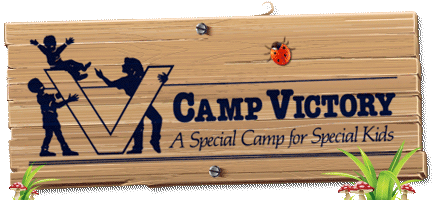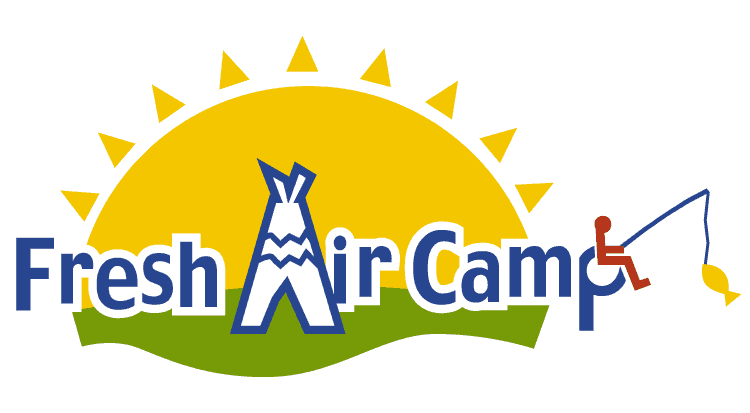IVUN
INTERNATIONAL VENTILATOR USERS NETWORK
an affiliate of Post-Polio Health International
CONNECTING
VENTILATOR USERS,
HEALTH PROFESSIONALS,
AND INDUSTRY
IVUN
INTERNATIONAL VENTILATOR USERS NETWORK
an affiliate of Post-Polio Health International
CONNECTING
VENTILATOR USERS,
HEALTH PROFESSIONALS,
AND INDUSTRY
VENTILATOR-ASSISTED LIVING
This issue sponsored by:
VOLUME 34, NUMBER 1
FEBRUARY 2020
Each summer, several camps across the country offer ventilator-assisted children a unique opportunity for fun and growth. These camps offer a wide variety of activities including swimming, sports, talent shows, arts and crafts and special events to entertain and educate campers. More importantly, these camps build confidence, foster independence and offer exciting, new experiences in a safe environment for children requiring ventilatory support..............................MORE
Peruse IVUN's annual listing of summer camps for ventilator-assisted children. Know of any camps not on the list? Contact IVUN at info@ventusers.org...MORE
ADDITIONAL SECTIONS
Advocacy
Educate, discuss, take action
Networking
Sharing the work of others
Recent Relevant Publications
Summaries, links to selected professional, disability, disease journals and newsletters
Educational Opportunities
Conferences and webinars for health professionals and ventilator users
Industry
The business of living with a ventilator
Ventilator-Assisted Living
Vol. 34, No. 1, February 2020
Editor: Brian Tiburzi
Designer: Brian Tiburzi
ISSN 1066-534X
© 2020 Post-Polio Health International.
Permission to reprint must be obtained from Post-Polio Health International (PHI) at info@post-polio.org.
Ventilator users, health professionals, non-profits, company representatives – send comments and updates to info@ventusers.org.
Each summer, several camps across the country offer ventilator-assisted children a unique opportunity for fun and growth. These camps offer a wide variety of activities including swimming, sports, talent shows, arts and crafts and special events to entertain and educate campers. More importantly, these camps build confidence, foster independence and offer exciting, new experiences in a safe environment for children requiring ventilatory support.
The camps are often staffed by a volunteer force of professionals that include physicians, nurses, respiratory therapists, physical and occupational therapists, and educators. They also provide extensive medical and pulmonary care. Some camps also draw their volunteers from among university students majoring in various health care fields. Camps often require physician clearance before a child can attend.
Many of the camps are free for attendees, while others offer assistance for those unable to afford them. Often the camps rely on grants and donations for funding. Nearly all of the camps’ websites offer a way to donate online if you wish to support them.
Besides giving kids the opportunity to experience new and exciting activities, these camps also help foster a sense of independence. For many first-time campers, it is their first experience away from home without their parents alongside.
As one parent describes, “Eternally overprotective parents, we were nervous to let [my daughter] attend a sleep away camp. She was so excited and boarded the bus with great enthusiasm. She was so excited to have some independence from us. It was a wonderful and positive experience for her. She looks forward to attending camp every year.”
Joel Vander Molen, who first attended CHAMP Camp as a child back in 1993 and later volunteered as a counselor, attests, “If you have a child age six to high school who uses mechanical breathing, I highly recommend CHAMP Camp. It is a unique experience that is a great opportunity for those involved. For one week out of the year, we get to leave the real world behind and just be a regular person.”

Joel Vander Molen (left) at CHAMP Camp
For those parents that wish to stay with their child, there are camps where parents or a caretaker attend with the child. One such camp is VACC Camp in Miami, Florida. For families of young children, besides being able to share a bonding experience with their child, this setup offers the chance to network and socialize with other parents, enhancing their social support system.

A young camper with his mother at VACC Camp
Bela Florentin, VACC Camp Program Coordinator, asserts, “Camp is an extraordinary experience for everyone involved – the staff, the campers and their families, and all the volunteers, adults and teens. Your life perspective changes after experiencing VACC Camp for the first time. You just have to see the smiles on the children’s faces to understand.”
camps for
ventilator-assisted
children 2020
CHAMP CAMP
CHAMP Camp 2020 will take place June 14-18, 2020 at Bradford Woods, Martinsville, Indiana. This year marks their 30th year of holding the annual camp. Click here for the application. All information needs to be complete by March 1.
FRESH AIR CAMP
Fresh Air Camp is scheduled for June 7-12, 2020 at Camp Cheerful, Strongsville, Ohio. The camp is a grant and donation funded program, and there is no cost for the child to attend. Find out more.
CAMP INSPIRATION
Camp Inspiration is specifically for BiPAP and ventilator-assisted children and will take place at the beginning of June at Double H Ranch, Lake Luzerne, New York. More information is available on their website.
PA VENT CAMP
PA Vent Camp is held annually at Camp Victory in Millville, PA. June 27 - July 3 are this year’s dates. For more information contact 717-531-5338 or info@paventcamp.org.
NEW JERSEY WAVE
VACC CAMP
TRAIL'S EDGE CAMP
Trail’s Edge Camp is a week long summer camp for children 5-18 years old who are ventilator-assisted and is located at the Fowler Center for Outdoor Learning, a beautiful barrier-free camp on 200 acres in Mayville, Michigan. This year's camp begins May 30th.
WAVE is a free camp for children who have complex medical needs such as needing ventilation, trachs, feeding tubes, or help with daily care. The program allows children to experience what many New Jersey kids enjoy at the shore, the beach, boardwalk, arcade, picnics, damp fires, etc. This year's dates are June 23-26.
CAMP PELICAN
Camp Pelican is a week-long overnight resident camp for children with pulmonary disorders-such as but not limited to severe asthma, cystic fibrosis, tracheotomy and ventilator assisted children. The 2020 session will take place May 30th - June 6th. Apply online.
ADVOCACY
Social Security Administration Proposes Rule Change for SSI, SSDI
The Social Security Administration (SSA) is proposing to change the way that disability reviews are conducted for the Supplemental Security Income program (SSI) and the Social Security Disability Insurance program (SSDI). The proposed change is concerned with certain aspects of the periodic disability reviews, called Continuing Disability Reviews (CDR). The purpose of these is to establish if there is any change in the individual’s disability or medical condition.

The new regulation would add another category to the qualification list and increase the frequency of CDRs, which monitors the recipient’s eligibility required for benefit continuation. A review requires significant documentation as well as a physical exam by doctors contracting with SSA to determine if a person's disability has in fact improved. Experts believe the proposed rule would make the CDR process so burdensome that people will either be disqualified, or fall out of the process due to its difficulty.
The changes could affect millions of people and households and make it significantly more difficult for those who currently have benefits, over 10 million people, to maintain them. The proposal of the changes, described in the Federal Register, estimates it would amount to a $2.6 billion cut in benefits over 10 years, though it would add $1.8 billion in administrative costs.
Education Department Reports Increase in Kids Served by IDEA

More than 6.1 million students across the country ages 6 to 21 — or 9.2 percent of all kids — were served under the Individuals with Disabilities Education Act (IDEA) in 2017, the most recent year for which data is available. That’s up from 8.6 percent of children in 2008 according to a report from the US Department of Education made to Congress this month.
Graduation rates among special education students are also on the upswing, the report found. Some 70.5 percent of students ages 14 to 21 who exited school did so with a regular diploma compared to just 59 percent for the 2007-2008 school year.
Likewise, the number of students served under IDEA who dropped out of school declined from 24.6 percent to 17.1 percent over the same period, the the Education Department said.
NETWORKING
February 29th is Rare Disease Day
Each year on the last day of February, the rare disease community comes together to raise awareness for the 25-30 million Americans impacted by rare diseases. Sponsored by the National Organization for Rare Disorders (NORD), the goal of Rare Disease Day is to raise awareness amongst the general public and decision-makers about rare diseases and their impact on patients’ lives.

Anyone can get involved in Rare Disease Day! Go to rarediseases.org/rare-disease-day to find and get involved in events taking place across the country.
AHRQ Issues Report on NIPPV in the Home
The Agency for Healthcare Research and Quality (AHRQ) release a report earlier this month entitles "Noninvasive Positive Pressure Ventilation" in the Home as part of its Technology Assessment Program. The purpose of the review was to evaluate home noninvasive positive pressure ventilation (NIPPV) in adults with chronic respiratory failure in terms of initiation, continuation, effectiveness, adverse events, equipment parameters and required respiratory services. Devices evaluated were home mechanical ventilators (HMV), bi-level positive airway pressure (BPAP) devices, and continuous positive airway pressure (CPAP) devices.
Read the study's key messages and see the full report by clicking on the image above.
RECENT RELEVENT
PUBLICATIONS
Bethany L. Lussier, MD, FCCP and Won Y. Lee, MD, FCCP
Keeping up with the times: incorporating home mechanical ventilation education into pulmonary and critical care fellowship and clinical practice
“There is an opportunity (and responsibility) to improve current training guidelines to meet growing needs of the population and anticipate needs of trainees as they enter unsupervised practice. Although simulation initiatives at national CHEST meetings attempt to bridge education gaps, it is incumbent upon fellowship training programs to prepare pulmonologists with skills to manage HMV in order to maintain high standards of care in a safe, financially responsible and evidence-based manner.”
CHEST Physician. 2020 Feb;15(2): 17.
A transition program to adult health services for teenagers receiving long-term home mechanical ventilation: A longitudinal qualitative study
Dale CM, Carbone S, Amin R, Amaria K, Varadi R, Goldstein RS, Rose L.
“Ventilator-assisted adolescents (VAAs) and caregiver participants perceived a lack of transition readiness in their ability to manage health communication and coordination across multiple adult providers. Transition facilitators included early transition discussion, opportunities for VAAs to speak directly with HMV providers during appointments, receipt of print informational materials regarding adult services, and a joint pediatric-adult team handover meeting. Modifiable transition barriers included lack of other specialist referrals, insufficient information about adult homecare service funding, and limited involvement of family doctors. Unresolved transition barriers resulted in perceptions of service fragmentation.”
Pediatric Pulmonology. 2020 Mar;55(3):771-779. doi: 10.1002/ppul.24657.
Rapid Response and Code Events in Hospitalized Children on Home Mechanical Ventilation
Kun SS, Deavenport-Saman AD, Keens TG, Ward SLD, Takata GS.
“The overall incidence of [rapid-response (RR)]/code events in children on HMV was higher than among non-HMV hospitalized children. Children on HMV preparing for their initial hospital discharge had the greatest number of RR/code events. The most prevalent interventions among children with RR events were ventilator setting adjustments, and among children with codes the most frequent actions were tracheostomy-related interventions. Developing strategies to predict risk factors for RR/code events may help decrease harm among children on HMV.”
Respiratory Care. 2019 Dec;64(12): 1461-1468. doi: 10.4187/respcare.06402.
Association of Home Noninvasive Positive Pressure Ventilation With Clinical Outcomes in Chronic Obstructive Pulmonary Disease: A Systematic Review and Meta-analysis
Wilson ME, Dobler CC, Morrow AS, et al.
“In this meta-analysis of patients with COPD and hypercapnia, home BPAP, compared with no device, was associated with lower risk of mortality, all-cause hospital admission, and intubation, but no significant difference in quality of life. Noninvasive HMV, compared with no device, was significantly associated with lower risk of hospital admission, but there was no significant difference in mortality risk. However, the evidence was low to moderate in quality, the evidence on quality of life was insufficient, and the analyses for some outcomes were based on small numbers of studies.”
JAMA. 2020 Feb 4;323(5): 455-465. doi: 10.1001/jama.2019.22343.
Siblings’ Lived Experiences of Having a Brother or Sister With Home Mechanical Ventilation: A Phenomenological Hermeneutical Study
Israelsson-Skogsberg Å, Markström A, Laakso K, Hedén L, Lindahl B.
“Over the past few decades, there has been an increase in the number of children receiving home mechanical ventilation (HMV), and in many ways, families have taken responsibility for the required advanced homecare, which has placed considerable time demands on the family unit. Little is known about the life situation of the siblings of HMV-assisted children; their own voices and an insider perspective are missing.”
Journal of Family Nursing. 2019 Aug;25(3): 469-492. doi: 10.1177/1074840719863916.
Use of Noninvasive Ventilation with Volume-assured Pressure Support for Treatment-refractory Myasthenia Gravis
Diaz-Abad M, Todd N, Zilliox L, Sanchez A, Hafer-Macho C.
“As respiratory muscle fatigue progresses, alveolar hypoventilation ensues (first manifested by tachypnea with normal PCO2), followed by the development of hypercapnia, and eventually, severe hypoxemia. Timely application of noninvasive ventilation (NIV) might reverse this process in time to prevent intubation and invasive mechanical ventilation.”
Innov Clin Neurosci. 2019 Nov 1;16(11-12): 11-13. PMID: 32082936.
EDUCATIONAL
OPPORTUNITIES
Canadian Respiratory Conference 2020
The Canadian Thoracic Society will host the 13th Annual Canadian Respiratory Conference at Sheraton on the Falls, Niagara Falls, Ontario from April 16-18, 2020. Full details on sessions and speakers are available online. Early registration ends March 2.

ATS 2020
The American Thoracic Society 2020 International Conference will be held May 15-20 in Philadelphia at the Pennsylvania Convention Center and Philadelphia Marriott Downtown. Get more info at https://conference.thoracic.org.
Parent Project Muscular Dystrophy 2020 Annual Conference
PPMD's annual conference will take place June 25-28, 2020 at the Phoenician Hotel in Scottsdale, Arizona. The conference brings together nearly 700 families from around the world to learn the latest progress in the fight to end Duchenne.
Focus 2020
FOCUS 2020 will take place in Memphis, Tennessee, Friday & Saturday, September 11 & 12, 2020 at The Guest House at Graceland Hotel. Registration is now open. Full details are available at https://foocus.com.
CHEST 2020
CHEST is now accepting submissions for abstracts and case reports that will be presented at CHEST Annual Meeting 2020 in Chicago, Illinois, October 17-21. Accepted abstracts and case reports will appear in an online supplement to the journal CHEST. Submit by March 31, 2021.

INDUSTRY
Free CEU Credits Available from Ventec
Ventec Life Systems, maker of the VOCSN, now offers two ways to obtain continuing education units (CEU) accredited by the American Association of Respiratory Care (AARC) Continuing Respiratory Care Education (CRCE) system.
Online: Complete the online course "Providing Integrated Care with VOCSN Multi-Function Ventilator: Online." Sign in, watch the videos, pass the post-test, and complete an evaluation to receive 2.0 contact hours of CEU. Register online today.
In-Person: Ventec Clinical Specialists will offer "Providing Integrated Care with VOCSN Multi-Function Ventilator: In-Person Workshop" as part of an in-person VOCSN clinical training. Participate in the entire training including the VOCSN clinical checklist, and complete an evaluation form to receive 2.5 contact hours of CEU. Sign up to be notified of in-person training opportunities.

Ventec also offers additional VOCSN Training materials including videos, manuals, and more at VentecLife.com/Training.











